Academics, 2SLGBTQ students highlight potential 'transphobic undertones' in UWinnipeg lecture
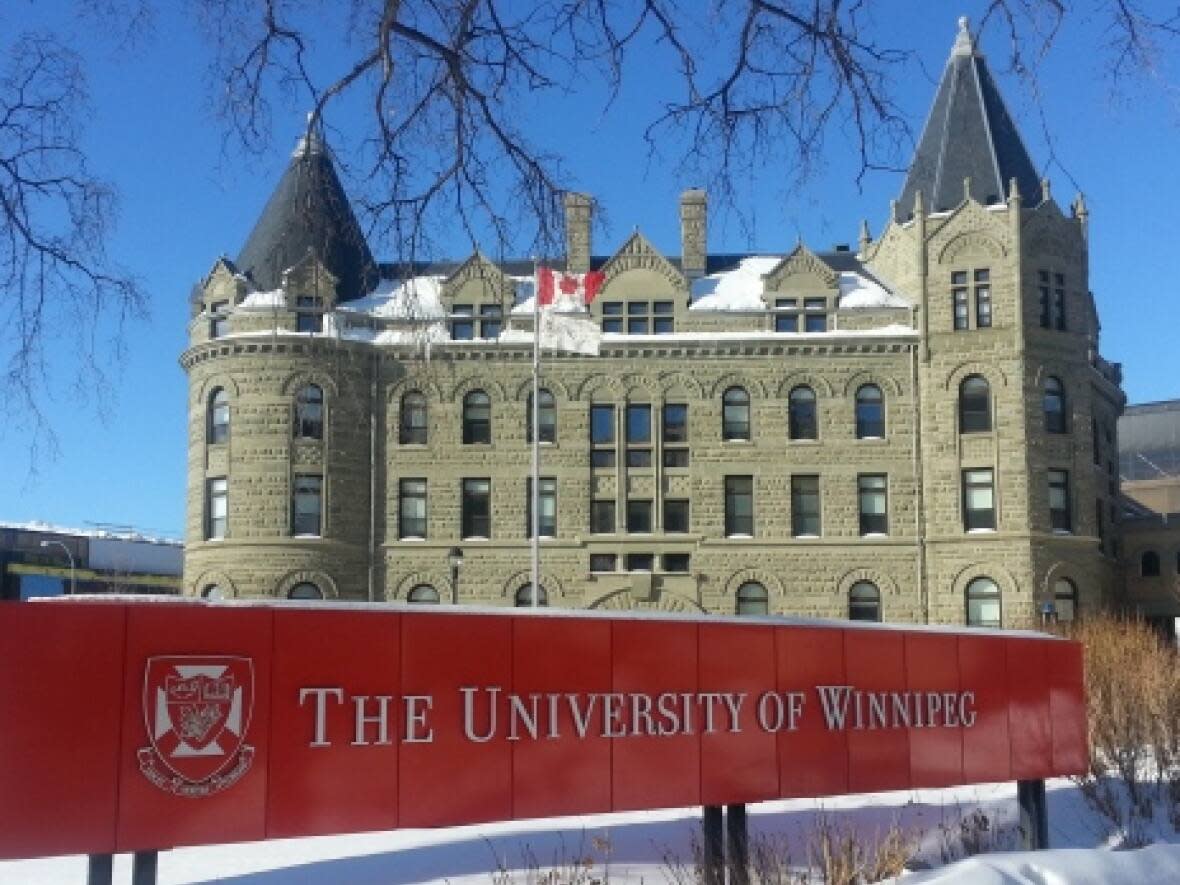
Some academics and members of the 2SLGBTQ community are pushing back against a planned lecture by a University of Winnipeg professor they worry could spread harmful views about transgender and non-binary people.
Posters for a lecture by U of W political science Prof. Joanne Boucher show her talk planned this Friday is titled "The Commodification of the Human Body: The Case of Transgender Identities."
The event description suggests it will focus on "economic interests involved in transgenderism" and says "the role government, corporate-funded lobby groups, the medical industry and the bio-technology sector will be highlighted."
A poster on campus indicates the lecture is part of the U of W political science department 2022-23 speaker series.
Boucher declined to be interviewed by CBC News, and a U of W spokesperson did not respond to a request for comment.
Though little else is known about what the lecture will entail, professors, students and some in the 2SLGBTQ (two-spirit, lesbian, gay, bisexual, transgender and queer) community said the event description hints at transphobic themes, and it comes amid a rise in harassment and legislation targeting the trans community and drag performers in several countries.
"Using the term 'transgenderism' is kind of a red flag right away," said Elliott Long, 36, a third-year U of W English student. Long, who uses they and he pronouns, is also founder of the group Trans Manitoba and a former staff member at the Trans Health Klinic.
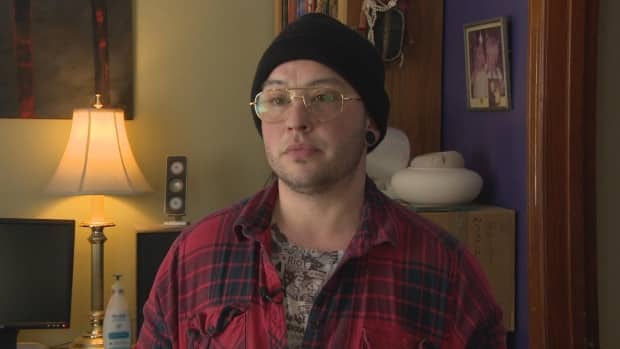
They said the term "transgenderism" isn't widely used by the trans community. He also suggested reducing the lives of transgender people to the medical experience of transitioning is wrong.
"It feels totally inappropriate.... There's lots of trans joy and things like that that are not being focused on," he said.
"The university is a historical place of student activism and human rights, so it seems very bizarre to me why they would promote this talk that is specifically singling out trans people."
Long wants the event cancelled. They said they raised their concerns with associate Prof. Aaron Moore, chair of the U of W political science department. CBC News requested to interview Moore but did not hear back.
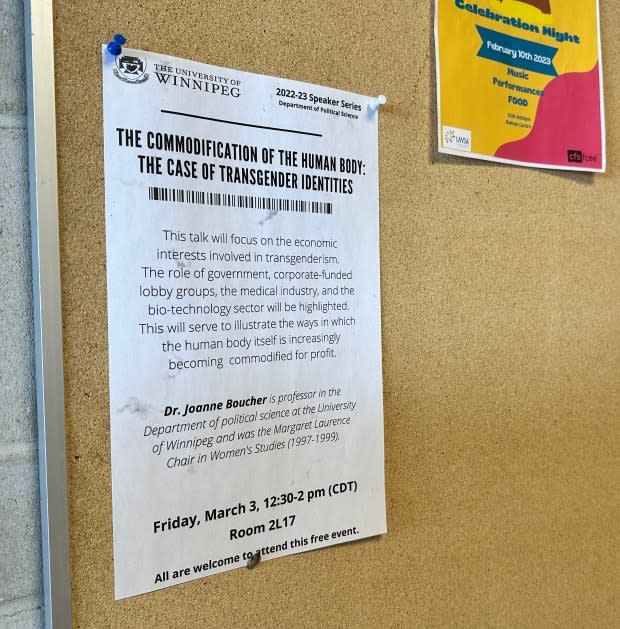
Fourth-year U of W student Emma Joyal started a petition calling on administration to cancel. It had over 900 signatures as of Wednesday afternoon.
Joyal is not trans but said as a member of the queer community, she was motivated to start the petition due to "transphobic undertones" in the event description.
"Cancelling the talk is a way to show that this type of rhetoric toward the trans community, toward the queer community, isn't acceptable and it's not going to be tolerated," she said.
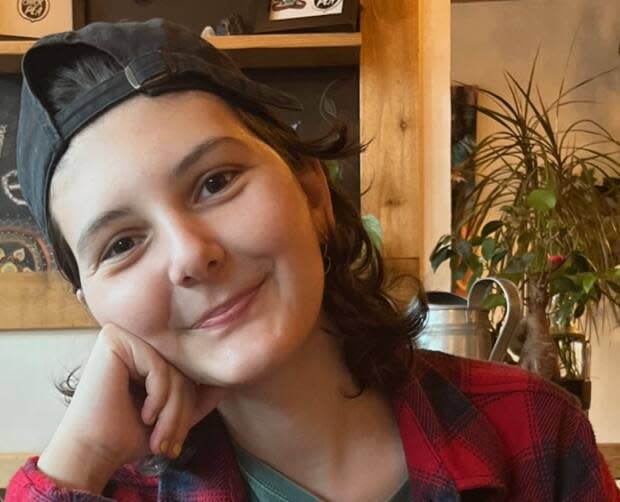
Alyson Brickey, assistant professor in the English department at the U of W, and two academics from the University of Manitoba are organizing a Trans Love Cupcake Hour. It will take place on the U of W campus during Boucher's lecture as a show of support for the trans community, she said.
Brickey said the terminology in the event description has been linked to publications and talks "that are in fact anti-trans."
"What we're doing is trying to centre trans voices in the community, in the broader community, that are telling us that this has a real potential to proliferate really harmful views."
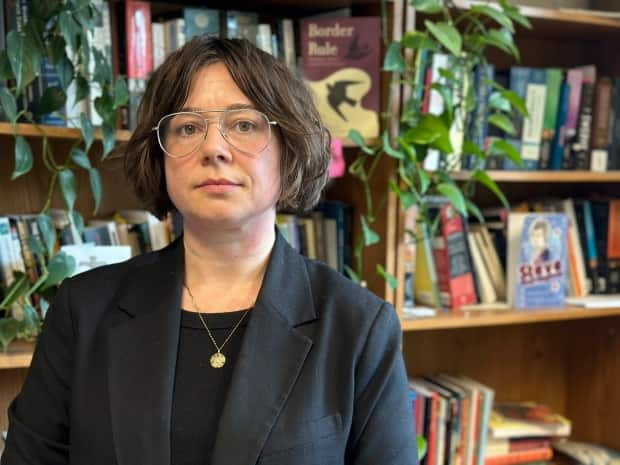
She thinks the university should review whether hosting the event aligns with its own inclusion policies and collective agreement.
Brickey said academic freedoms are important and exercising them responsibly is, too.
"That means, because universities are enmeshed in a larger society, that we need to be thinking responsibly and acting responsibly, to reject forms of oppression like racism, transphobia, antisemitism and misogyny," she said.
"We are not allowed to say and do anything we want as professors, and then use academic freedom in bad faith as a cloak for intolerant behaviour."
Bryce Byron, information and intake co-ordinator at Rainbow Resource Centre, said there are several "dog whistles" in the event wording that people unfamiliar with ongoing cultural and political efforts to undermine trans rights might not pick up on.
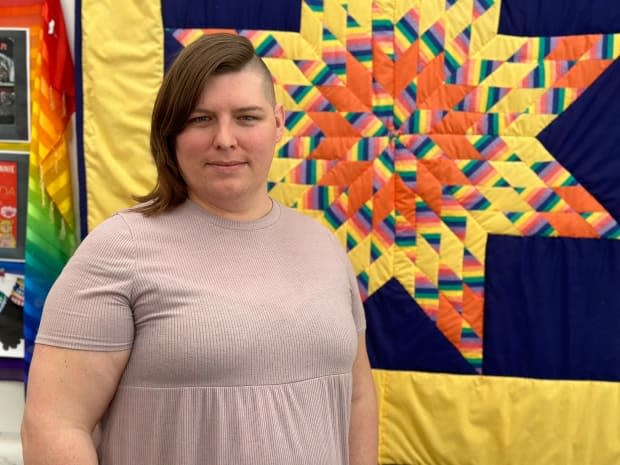
"It's important to hear what the people who don't like us are saying so that we can recognize when other people are being drawn down that same rabbit hole," said Byron, who uses ze/hir pronouns.
Byron pointed to a rise in anti-trans legislation, including in the U.S., that seeks to restrict access to trans health care or take away "trans people's ability to exist in public."
"The mention of corporate-funded lobby groups ... the reference to medical industry, bio-tech sector, those are all words being used in other countries to push an agenda that is actively transphobic and actively causing harm," said Byron.
Long hopes to hear more from the university administration.
"I really love your school and kind of wish you had our back here, because it doesn't feel OK," they said.


